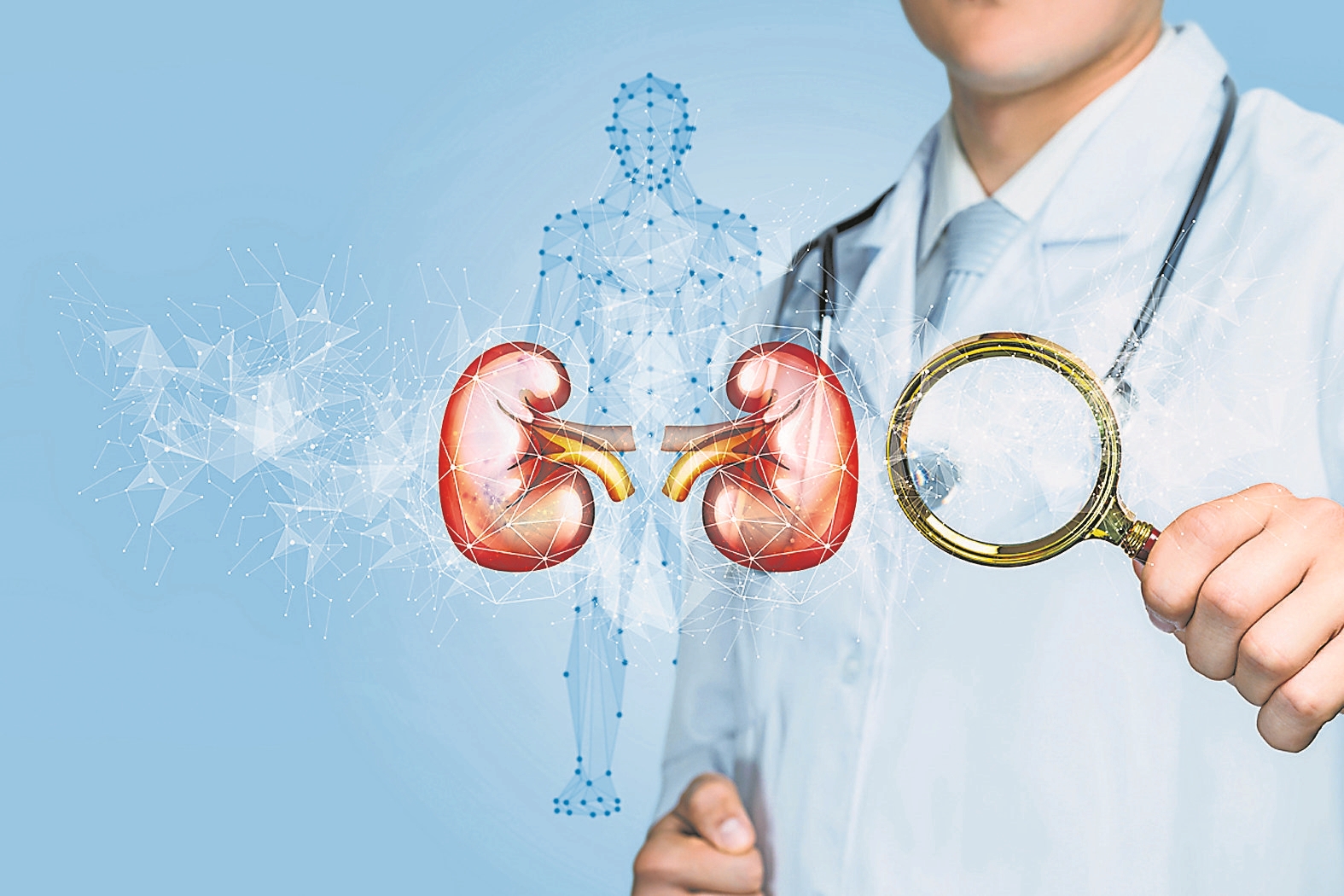[Local Medical]More than half of CKD patients have complications and do not hide the situation and get out of depression
[ad_1]
Text: Yang Qianni Arrangement: Liang Yingxiu
(Kuala Lumpur News) Chronic Kidney Disease (CKD) is a progressive disease that cannot be reversed by drugs. According to the glomerular filtration rate (eGFR), it is divided into 5 stages according to the strength of kidney function.
Studies have shown that the more serious the condition of CKD patients, the more serious the mental burden. Due to the need for dialysis treatment (kidney dialysis), CKD patients with stages IV and V experience greater mental stress than those with stages I to III.
In fact, not only CKD, but also other diseases. It is not uncommon for a person to be told that they have a serious and irreversible disease, and that they may experience reactions such as disacceptance, anxiety, depression, and in some cases, anger. It is important for everyone to understand that these psychological reactions are normal and human. You can understand, face and overcome them, so that you will not be carried away by psychological shocks, such as refusal of treatment due to anger. Decisions, or give up or affect treatment because of depression.
Doctors and patients overcome various obstacles together
Dr. Keng Tee Chau, Consultant of Nephrology, pointed out that the word “irreversible” may make CKD patients feel like they have been sentenced to death; but in fact, the road after diagnosis can still go on. Doctors will take patients through various obstacles together.
“Many patients cannot accept the reality and hope to restore kidney function no matter what, so they try various so-called “curable” but unproven treatments, which not only cost money but also damage the body and lead to the deterioration of the condition. Therefore, understanding the CKD condition Evolution and therapeutic approaches are needed that better address patients’ emotions caused by the unknown or uncertainty.”
“After telling the challenges that they will face in the future, the doctor needs to listen to the voice of the patient, understand what they are most worried about, and then start from it. If these negative emotions are not alleviated, no matter how much the doctor spends and explains the treatment method in depth, the patient It is also inattentive and unable to absorb information. Psychological changes have a great impact on the positiveness of treatment. In addition to letting patients know the importance of treatment and not imagine the horror, doctors also need to understand the patient’s background, including religious beliefs, family status or economic conditions, etc.”
He said that the reasons for each patient’s psychological reaction are different, such as businessmen who worry that they will not be able to continue their business, and housewives who worry that they will no longer be able to take care of their children. “And I will conduct a targeted analysis and tell them that even if they receive treatment, they can still start a business and support their families, and they can still be a good mother, but they just need to work together.”
“Even if CKD progresses to the advanced stage and kidney dialysis cannot be avoided, these family, social and work responsibilities can still continue, but you have to pay more than others. Help patients see through the road ahead, and there is still hope after seeing various obstacles , they can solve their psychological distress and actively cooperate with treatment.”
“If you ignore all kinds of negative emotions, patients will 100% avoid them, and often appear doctor shopping. After seeing one doctor after another, they are rushed to the emergency room until the body can no longer bear it. Kidney dialysis.”
People with depression have a lower survival rate
Therefore, in the treatment and management of CKD, nephrologists not only provide medical help, but also care about the patient’s psychological condition, and talk about technical terms indiscriminately. After all, this is a long-term process and cannot By the efforts of one party alone.
“When some patients have more serious psychological distress,
For example, depression, we can also refer to a psychiatrist for help.
Studies have shown that more than 50% of CKD patients have depression,
Especially terminally ill patients, whose survival rate is even lower. “
He stresses that this is not to say that depression directly affects survival, but that it is related. In fact, it is not difficult to understand that when the patient’s condition is more serious, the survival rate is relatively lower, and the probability of depression is also higher.
“In fact, doctors really want to help. Patients don’t need to hide these emotions and suffer secretly. Sometimes some negative emotions can also be controlled by drugs in the short term, and when you are in a valley, many things can’t be figured out, so Don’t give up, talk to others with confidence, let’s work together to get out of the storm!”


Psychological shock is not dealt with
Misguided patients are more difficult to treat
Another big problem in the early stage of CKD is asymptomatic, so many people ignore it, and only start to look for “miracle cures” nervously when their bodies are not right.
When the disease becomes more serious, physical symptoms also surface. Patients may feel stressed, tired, or have swollen feet. In addition, they may feel weak when doing things, and the psychological changes will be more obvious.
Gong Zhichao said that when CKD patients are in stages I to IV, doctors will try their best to help delay dialysis, and patients with greater psychological obstacles are often stage V patients, because the current medical technology cannot reverse the situation. It can be used for kidney dialysis or transplantation, so doctors need to work hard on them.
“Especially when the physical condition starts to change, the psychological impact will be more obvious. If it is not handled properly, the patient will be misled and lead to an incorrect path of treatment.”
Lifestyle habits affect the treatment effect
There are many reasons for emotional outbursts in patients, such as physiological changes, economic pressure, or changes in living habits. In particular, don’t underestimate your living habits. You can no longer eat your favorite food or continue to do your favorite things, which will affect the therapeutic effect. I often advise patients not to be too obsessed. If you lose a hobby, you can find a new one. Maybe you can no longer travel abroad because of kidney dialysis. Maybe you can change your goal, such as trying fishing is also good.
He said that sometimes we have to enlighten from other aspects, such as telling elderly patients not to be depressed because they cannot drink tea with old friends, and to actively treat them, and it is also a good thing to be able to watch their grandchildren grow up at home.
“It is undeniable that CKD will cause many restrictions in life, and this is an unchangeable fact. If you keep holding on to it, there is no way. There is a way, but the choice is yours.”
“I once met a young man who was in the last year of his law school when he was diagnosed with terminal CKD. No, we all see it.”
“After understanding the source of his stress, we told him that there is no need to give up his career, and he can continue after taking a 6-month delay to recuperate his body. Now, he has opened a law firm who needs regular kidney dialysis, and everyone is very surprised. Therefore, Diagnosing CKD is not the end, although the effort and sacrifice are more than the average person, but as long as we keep going, life will definitely have a new look.”
The treatment of CKD needs to prescribe the right medicine according to the cause. Currently, kidney damage is mainly caused by long-term high blood sugar or high blood in the world and in Malaysia.
Therefore, patients need to control blood sugar and blood pressure well.
However, the biggest headache for doctors is that many patients don’t want to talk about “other” things and just want the doctor to prescribe drugs to treat the kidneys.
He emphasized that although 100% recovery cannot be achieved, early detection of CKD can preserve the remaining renal function and delay the dialysis stage. The first is to avoid taking kidney-damaging drugs, such as painkillers, drugs of unknown origin, and excessive health products, which will burden the kidneys.
Supplement needed nutrients and protein
In addition, many people misunderstand that high blood sugar and high blood pressure drugs can damage the kidneys, which is actually incorrect.
“When renal function declines and enters stage III, patients need to reduce dietary protein intake and follow a low-protein diet. This is because protein will be digested and turned into urea, which will increase the burden on the kidneys. At the same time, patients can be combined with keto acid (keto acid) treatment.”
Keto acids can convert urea into essential amino acids. By reducing urea in the blood, the burden on the kidneys is reduced. Based on the weight of an adult in Malaysia, patients need to take 6 to 12 capsules per day (1 capsule per 5 kg). Keto-acid therapy and a low-protein diet can provide a synergistic effect.
A low-protein diet needs to be coordinated with a diet therapist. Simply not eating meat is not enough, but it will cause other health problems, such as severe lack of nutrition.
“Therefore, it is important to work with a qualified dietitian, who will calculate the calories and protein required by the patient, increase and supplement the required nutrition and protein from other sources, and adjust it differently from person to person.”


[ad_2]
Source link

![[Love Wants Sexual Happiness Series 358]Find the culprit and overcome psychogenic erectile dysfunction. Don’t let pressure affect your sexual happiness.](https://chinathenews.com/wp-content/uploads/2024/04/171111-780x420.jpg)

![[Wanqingyi Care]My health, my rights, customized medical methods in the last stage of life](https://chinathenews.com/wp-content/uploads/2024/04/ZZ1-100-780x420.jpg)
![[Kidney Transplantation Special Topic]The survival rate of transplanted kidneys is high without dialysis treatment three times a week](https://chinathenews.com/wp-content/uploads/2024/04/1311-780x420.jpg)



